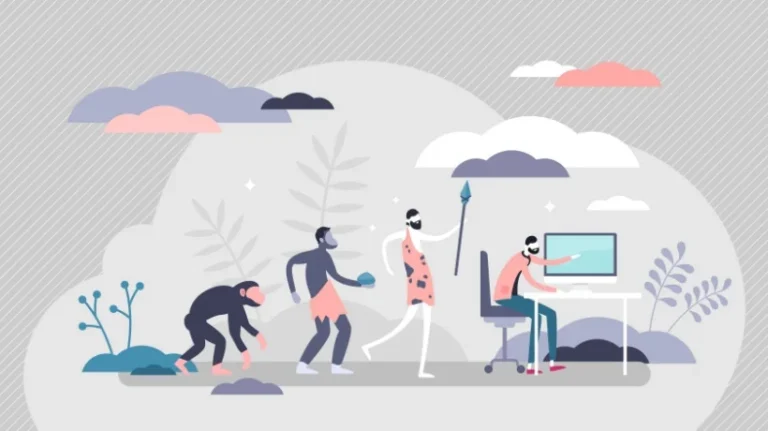From Fire to Artificial Intelligence: Exploring the Remarkable Evolution of Technology. Technology has become an integral part of our lives, shaping the way we live, work, and communicate. From the earliest forms of technology, such as fire and tools, to the modern advancements in artificial intelligence, the evolution of technology has been nothing short of remarkable.
The Evolution of Technology: From Fire to AI
The journey of technology began thousands of years ago when early humans discovered fire. The ability to control fire not only provided warmth and protection but also paved the way for cooking food, which was a significant advancement in itself. This discovery marked the beginning of human civilization and laid the foundation for future technological advancements.
As time went on, humans developed tools and weapons made from stone, bone, and wood. These primitive tools allowed early humans to hunt, gather, and build shelters. The invention of the wheel revolutionized transportation and trade, enabling the movement of goods and people over long distances.
Unleashing the Power of Technology: A Journey through History
The next major leap in technology came with the invention of writing. The ability to record and communicate information through written symbols was a crucial development in human history. Writing not only preserved knowledge but also allowed for the sharing of ideas and the transmission of information across generations.
Fast forward to the Industrial Revolution, and we witness the birth of modern technology. Steam engines powered factories, leading to mass production and the rise of industrialization. The invention of the telegraph and later the telephone revolutionized communication, connecting people across vast distances like never before.
From Fire to Artificial Intelligence: Exploring the Remarkable Evolution of Technology
With the advent of electricity, technology took another giant leap forward. Electric power transformed industries, homes, and cities. The invention of the light bulb brought light to the darkness and extended working hours. The development of the radio and television brought entertainment and information into people’s homes.
In the second half of the 20th century, the world witnessed the rise of computers and the internet. The invention of the first electronic computer paved the way for the digital revolution. Computers became smaller, faster, and more powerful, leading to the development of personal computers and later smartphones.

The Impact of Technology on Human Civilization: A Historical Perspective
Today, we are living in the age of artificial intelligence (AI). AI has the potential to revolutionize almost every aspect of our lives, from healthcare and transportation to finance and entertainment. Machines can now learn, reason, and make decisions, surpassing human capabilities in certain tasks.
The future of technology is exciting and full of possibilities. Advancements in fields like nanotechnology, biotechnology, and quantum computing hold the potential to transform our world even further. As technology continues to evolve at an unprecedented pace, it is essential to consider the ethical implications and ensure that it is used for the betterment of humanity.
With the advent of electricity, technology took another giant leap forward. Electric power transformed industries, homes, and cities. The invention of the light bulb brought light to the darkness and extended working hours. The development of the radio and television brought entertainment and information into people’s homes.
Electricity to AI: Tracing the Milestones of Technological Advancement
In the second half of the 20th century, the world witnessed the rise of computers and the internet. The invention of the first electronic computer paved the way for the digital revolution. Computers became smaller, faster, and more powerful, leading to the development of personal computers and later smartphones.
Today, we are living in the age of artificial intelligence (AI). AI has the potential to revolutionize almost every aspect of our lives, from healthcare and transportation to finance and entertainment. Machines can now learn, reason, and make decisions, surpassing human capabilities in certain tasks.
The future of technology is exciting and full of possibilities. Advancements in fields like nanotechnology, biotechnology, and quantum computing hold the potential to transform our world even further. As technology continues to evolve at an unprecedented pace, it is essential to consider the ethical implications and ensure that it is used for the betterment of humanity.

